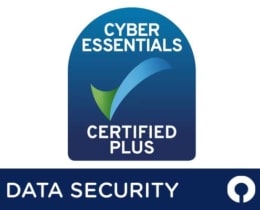FMIS turns 30 (1986 – 2016)
1986 was a good year for IT. This was the year that Bill Gates became one of the youngest billionaires in history after he listed Microsoft on the New York Stock Exchange. Steve Jobs co-founded Pixar in the same year and IBM announced their first laptop weighing in at a hefty 12 pounds.
A good idea
With a bit less fanfare, another tech start-up was launched near London. Initially designed for the IBM AS400, FMIS launched the first version of it’s Fixed Assets module to fill the gap for a fixed asset management system that would be robust enough for large organisations yet simple to use. Since that early start, the software has evolved into a full Enterprise Asset Management system that is currently used in over 40 countries worldwide.
More than just Fixed Assets
Although fixed asset management has remained at the core of what FMIS offers, the software has developed significantly since those early days. The company has built an enviable reputation for flexibility as it has developed a range of modules covering everything from purchase to payment including order processing, stock and inventory control, shipping, field services management, resource planning and more.
Putting people before projects
Mike Clements, senior developer at FMIS, attributes much of the company’s success to an ethos that is more about relationships than software. “We want to partner with our clients rather than just sell them software. The right software is important but that comes from understanding what people really need rather than just having a good product”.
In fact, many of the current FMIS modules originated from client requests rather than market research or brainstorms. One such relationship is with Mike Kiess the Director of Quality Assurance at the Veteran Corps of America. Talking about his relationship with FMIS, Mike highlights this approach as being key to their successful relationship; “FMIS responsiveness and flexibility are the same values we offer to our customers.”
Looking forward to the next 30 years
The speed of technological development in recent years has led to rapid changes within the asset management sector such as the move towards cloud-based systems and mobile tech. Globalisation has also resulted in an almost overwhelming choice of suppliers for asset management projects.
According to Mike Clements, keeping pace with change is important, but it is not everything: “Effective asset management is about more than system features or cost. Time and again experience has shown that the truly successful projects are those where you start with the right people working well together and build from there.”
“Whatever the asset management landscape looks like in the future, I don’t think the personal element will be any less significant for FMIS. It is at the heart of who we are as a business and, I believe, what makes us different.”
For more information on FMIS Fixed Assets, please contact one of the team directly at sales@fmis.co.uk or on +44 (0) 1227 773003.








